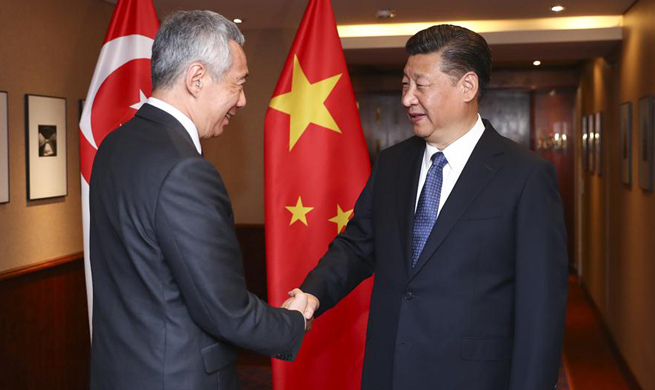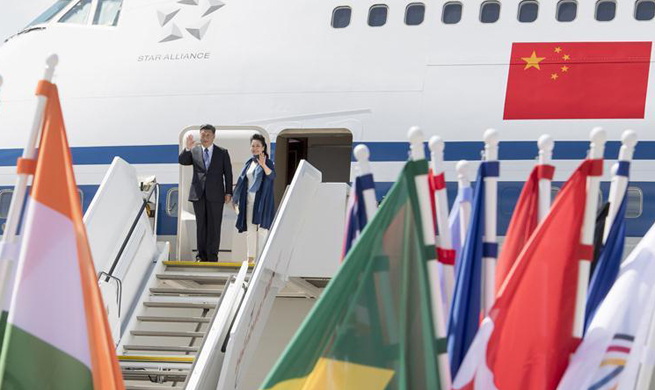CAIRO, July 7 (Xinhua) -- The Central Bank of Egypt (CBE) decided Thursday to raise its benchmark interest rates by 200 basis points to control inflation as the country is implementing a harsh reform program.
The bank raises the overnight deposit rate, overnight lending rate, and the rate of the CBE's main operation by 200 basis points to 18.75 percent, 19.75 percent, and 19.25 percent, respectively.
In a statement released on Thursday night, the CBE said the discount rate was also raised by 200 basis points to 19.25 percent, adding that annual headline inflation in May 2017 fell for the first time since October 2016 to record 29.7 percent compared to 31.5 percent in the preceding month.
"The drop was partly due to a favorable base effect stemming from the exchange rate depreciation in March 2016 that strongly impacted prices in May 2016," the statement read.
Egypt on Thursday announced a new increase in electricity prices ranging from 18 to 42 percent, based on consumption.
The electricity hikes came a week after the government raised fuel prices up to 55.3 percent and doubled the price of gas cylinders that are used at many homes and restaurants.
The moves came as part of the country's economic reform program that includes lifting energy subsidies completely within a few years.
Meanwhile, annual core inflation continued to be supported by favorable base effects since March 2017, dropping to 30.6 percent in May from 33.1 percent in February.
The CBE's statement added that the impact of the November 2016 economic reform measures on prices of goods and services has largely passed-through, with the lagged impact affecting prices of items that witnessed delayed or seasonal consumption such as pilgrimage services in May, which contributed 0.6 percentage points and 0.9 percentage points to headline and core inflation, respectively.
Excluding effects of transitory shocks, underlying inflation remained somewhat higher than consistent with achieving the CBE's target, affected by price-setting behavior in line with annual inflation of 10 percent historically, which has been further magnified recently due to second-round effects of the economic reform measures, the statement said.
"This has been reflected especially in food components of core consumer as well as producer prices," the statement explained.
Additionally, higher prices of hydrocarbon products effective on June 29, 2017, higher value added taxes effective on July 1, 2017, higher electricity prices scheduled for July 2017 as well as other potential regulated price adjustments further increase inflationary pressures, the statement said.
The statement also said that CBE's Monetary Policy Committee will continue to closely monitor all economic and monetary developments as well as the balance of risks, and will not hesitate to adjust its stance to offset anticipated upside or downside deviations from the inflation target.
Suffering an economic crisis over the past few years due to political issues and security challenges, Egypt fully floated its local currency last November as part of a three-year strict economic reform program, which is encouraged and supported by a 12-billion-U.S.-dollar loan from the International Monetary Fund (IMF).
The fuel and energy price hikes led to price increase in almost all commodities and services in the most populous Arab country and greatly pressure low-income citizens.
Meanwhile, the CBE announced that the country's foreign reserves continued to climb registering 31.31 billion dollars at the end of June and edging closer to pre-2011 levels of 36 billion dollars.
The reserves, which have increased from 28.64 billion dollars at the end of April to 31.13 billion dollars at the end of May, have been climbing since Egypt got a three-year, 12-billion-dollars loan from the IMF.
The IMF has endorsed Egypt's economic reform program, which includes cutting subsidies, raising taxes as well as floating the currency of Egyptian pound.
Egypt received an initial 2.75 billion dollars tranche from the IMF last November, with a second tranche expected this month.

















